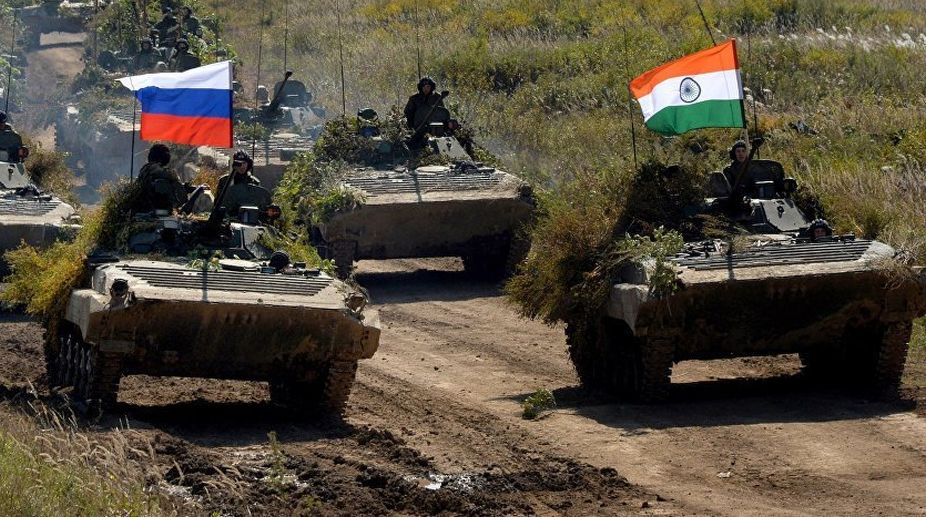
- The draft logistics agreement between India and Russia is expected to facilitate joint military exercises, humanitarian assistance, and peacekeeping missions.
- Russia wants to increase its visibility in the face of changing global economic dynamics by gaining access to important ports in the Indian Ocean region.
- The pact can provide India with vital choices in times of regional escalation, reducing the risks associated with its occasionally antagonistic neighbours.
Indo-Russian relations are experiencing significant developments following Russia’s recent approval of a draft logistics agreement. The agreement, published on the Russian legal information portal, aims to establish mutual logistical cooperation between the two nations during military operations. This pact is expected to facilitate joint military exercises, humanitarian assistance, and peacekeeping missions. Both countries anticipate streamlined refuelling and maintenance support. The Russian Prime Minister has instructed the Ministry of Defence to initiate negotiations with their Indian counterparts to finalize the document. Once accepted, the agreement will be valid for five years, automatically renewing unless either nation opts out.
International logistics agreements are not unusual for India. India has long-standing logistical relationships with the US, France, South Korea, Singapore, Australia, and Japan in addition to Russia. Among India’s many international alliances is the most recent military technological cooperation pact with Russia, which was signed in 2021 and will endure until 2030. Under this logistics pact, both nations will have access to each other’s naval ports for docking military vehicles, further enhancing strategic cooperation.
Russia’s Perspective
Should the deal be signed, Russia will benefit greatly. The country wants to increase its visibility in the face of changing global economic dynamics by gaining access to important ports in the Indian Ocean region. With Europe’s market for Russian exports dwindling, Russia is pivoting towards emerging markets in South Asia and Africa. Strengthening its presence in the Arabian Sea not only showcases Russia’s naval prowess but also supports the International North-South Corridor, crucial for connecting South Asia to Europe.
India’s Perspective
The prospective advantages for India might prove to be extremely useful in actuality. Beyond short-term strategic advantages, these accords provide India with vital choices in times of regional escalation, reducing the risks associated with its occasionally antagonistic neighbours. In an imminent geopolitical environment, India prioritizes partners that can offer help during difficult times, strengthening its security posture. Beyond military logistics, India and Russia have collaborated extensively in technological fields such as space exploration and nuclear energy. These joint ventures highlight mutual trust and shared technological aspirations.
In conclusion, the upcoming BRICS summit may serve as the platform for both nations to formalize this pact. However, India’s proactive approach may encounter opposition from Western powers, particularly the United States, reflecting broader geopolitical tensions. The agreement raises pertinent questions about India’s evolving foreign policy and its implications under various diplomatic scenarios.
